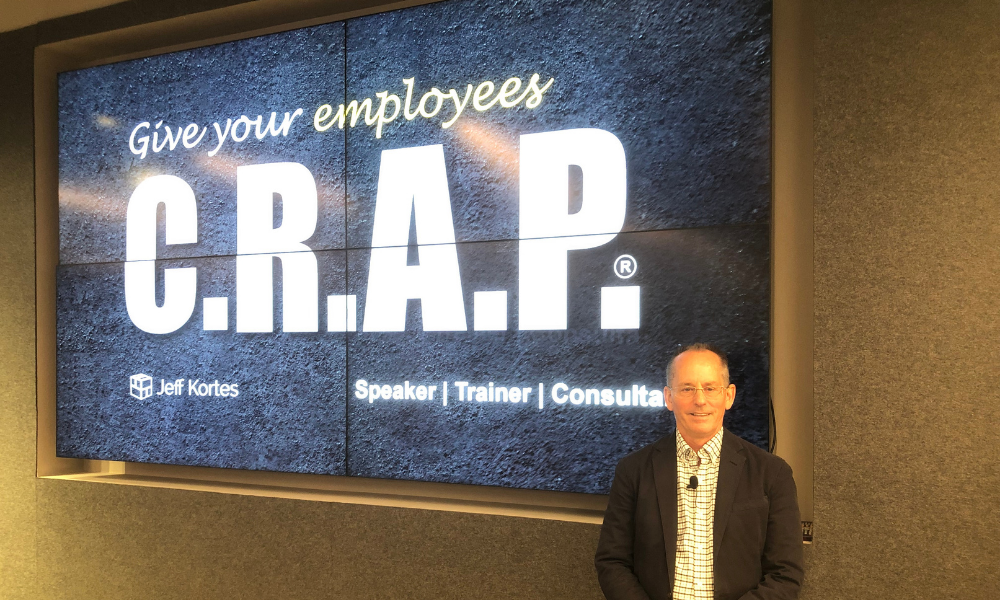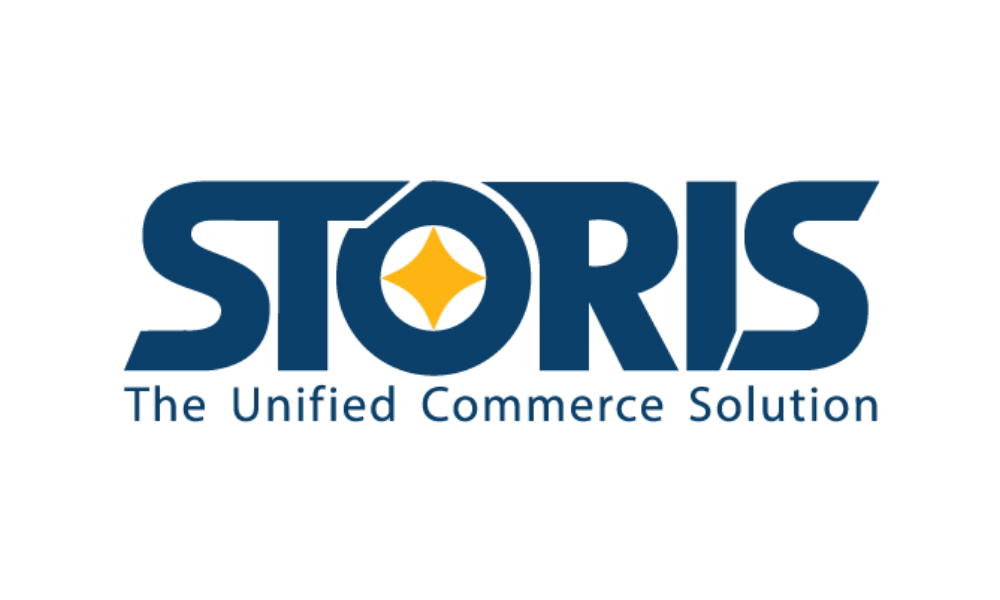Giving your employees C.R.A.P.—caring, respect, appreciation, and praise—was the topic of author and Human Asset Management LLC founder Jeff Kortes’s presentation at the ICFA retail seminar that took place on Sept. 20, before the start of Casual Market Chicago.
Breaking down each letter in the acronym, Kortes first explained that you need to care for your employees by being there for them. That means having an employee assistance program or any other resources that could help a worker who might be struggling with problems inside or outside the company.
Kortes mentioned that 20% of your workforce at any given time has something going on that prevents them from focusing completely on the job. That could be anything from divorce to mental health problems, and more.
Make the employees comfortable enough to come to you if they have a problem, because Kortes said you want to have an answer for your employees and be available to them whenever they might need you.
“You can’t care unless you know your people,” he said. “Visibility drives communication, communication drives trust, and trust drives loyalty.”
He also added that by 2025, 75% of the workforce in the U.S. will be under the age of 37, and it only takes three times of not being available to your employee for them to think about looking for another job.
When it comes to respect, Kortes explained that you should hire good people and then leave them alone. If you tend to micromanage, cut that habit and listen to your people. Also, share as much information as you can and keep the communication open and ongoing.
“Communication empowers people and shuts down the grapevine,” Kortes said.
If someone comes to your office to talk to you about something, put down your phone, close your computer, look and them and simply listen. “People quit nameless, faceless organizations,” Kortes said. “ You have to want to help people succeed and expect excellence.”
One exercise Kortes recommended is for retailers is to walk around their stores and warehouses once a day to show their employees that they’re there for them and not just faceless bosses.
Showing appreciation for employees is extremely important, according to Kortes, and he said that 76% of Millennials have said they’d think about quitting a job if they’re not appreciated.
He also explained that about 50% of employees don’t feel appreciated at work, so you need to recognize your employees for a job well done, catch people doing the right things, and celebrates successes—whether its a big sale, a happy customer, a good review or anything else.
However, there’s a difference between appreciation and praise. Kortes said to only praise employees when they hit it out of the park, but appreciation for smaller things can be shown every day. When it comes to praise, he said it’s like positive affirmation on steroids. Give people credit where credit is due, and never steal their credit. If you do, Kortes said that creates a Moment of High Influence (MOHI) which prompts employees to take action, like looking for another job.
Most people fail in the first six months, according to Kortes, and he said when it comes to hiring new employees and offering a sign-on bonus, the “magic number” is $2,500. He noted that the amount seems high, but he also said to remember what it costs to not have someone in that role.
He also added that the words “if” and “but” are great erasers, and you should purge these words from your vocabulary. They only serve to bring the employee down and make them think about what they did wrong, rather than what they could have done differently.
Instead of telling an employee what they did wrong, Kortes said to tell them what they can do better next time. This type of communication isn’t abrasive and will help the employees know what to do to succeed.
“If you implement this acronym and focus on the fundamentals, you will have success in finding good employees and more importantly, retaining them,” Kortes said.








